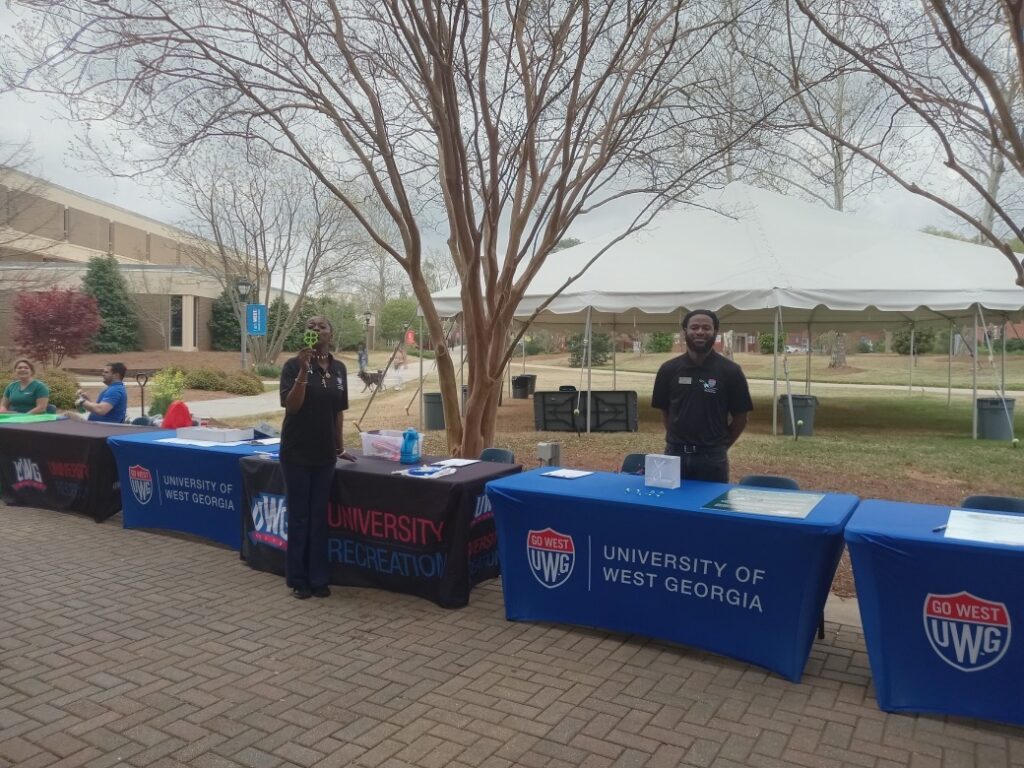Breanna Tillie
Going to college is typically an exciting time in life. The freedom that comes with being almost entirely independent of adults for the first time combined with heaps of social and intellectual novelty can create a wealth of memories to look back on for decades to come.
However, this newfound liberty also means that it is especially important to prioritize safety so that the student’s time in college is shaped with positive experiences rather than devastating ones. Many students are passionate about assisting other fellow students in staying safe.
The Peer Health Educators at the University of West Georgia hosted “Take Back the Night” on April 2 in acknowledgement of Sexual Assault Awareness Month.
“With it being Sexual Assault Awareness Month, we thought this would be the perfect time to spread awareness to our students and peers,” said lead peer educator, Devin Martin. “Also, this event was to advocate for victims of sexual assault and let them know that they’re not alone with the battle they’re facing. We’re here to support them all the way through.”
While the Peer Health Educators understand the trauma and distress of having an experience with sexual assault, these advocate also support victims in taking steps in the right direction afterwards.
“If they encounter a situation regarding sexual assault, we like to educate them and bring awareness of some of the resources we have here on campus like Title 9 office, which is a service for students that provides confidential counseling and an opportunity to make reports for disciplinary action,” said Martin. “We know when it comes to things like this, students want to take a more private and discreet approach.”
Confidential counseling after the usual shock, pain, and confusion of experiences with sexual assault is of high consideration to the Peer Health Educators.
“Confidential counseling gives them the chance to have a one-on-one session,” said Martin. “Everything that is mentioned between that person and the counselor stays between them. It doesn’t get reported to anyone unless the victim wants to.”
Parents may have cause for concern with their children going to live on a university campus, especially as stories of sexual assault on college campuses continue to come out. The Peer Health Educators at the University of West Georgia want parents to know that their children are taken care of regarding support and resources.
“Our job as peer educators is to bring awareness and educate students about taking advantage of resources,” said Martin. “We know a lot of underclassmen are unaware about what’s available and we want students to be so knowledgeable about the services provided that parents know about it too.”
Martin also encourages those who are passionate about the physical, mental and emotional health of students to become involved with the Peer Health Educators.
“We do a lot of table events, presentations and workshops. The majority of these events are in relation to health topics such as safe sex, alcohol awareness, mental wellness, nutrition and more,” said Martin. “Being able to interact with your peers on campus and getting to know how they feel mentally and physically. Not just how they feel about campus, but their overall wellbeing. We have the luxury of being able to give advice and help them to the best of our abilities.”
You may also like
-
UWG Fails to Protect Student Safety From Radical Conservative Rhetoric Under the Guise of Free Speech
-
UWG’s Ingram Library Hosts Pop-Up Study Spot to Help Students Prepare for Finals Week
-
UWG Offers Mental Health Support And Academic Services To Maintain Student Success During Finals Week
-
UWG Alumnus Shares His Experience Exploring the Underground Flood Channels of Las Vegas
-
Georgia Students Simulate the Struggles of Dementia
